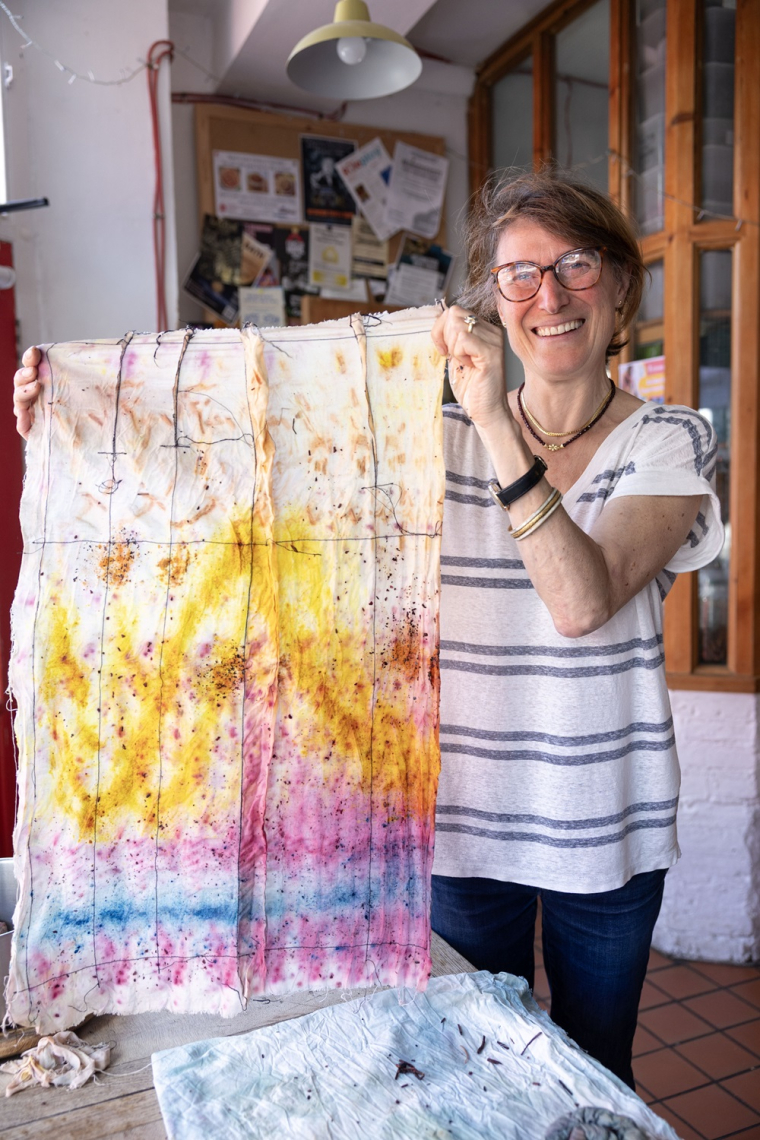The New Tribe Arts Development C.I.C. is a grassroots community group based Haringey, north London, one of their funders Elizabeth Salazar, and mind behind Onions and… natural dyes and weaving workshops; with a passion for sustainability, creativity, and connection, Elizabeth leads workshops that transform everyday waste into beautiful, meaningful art.
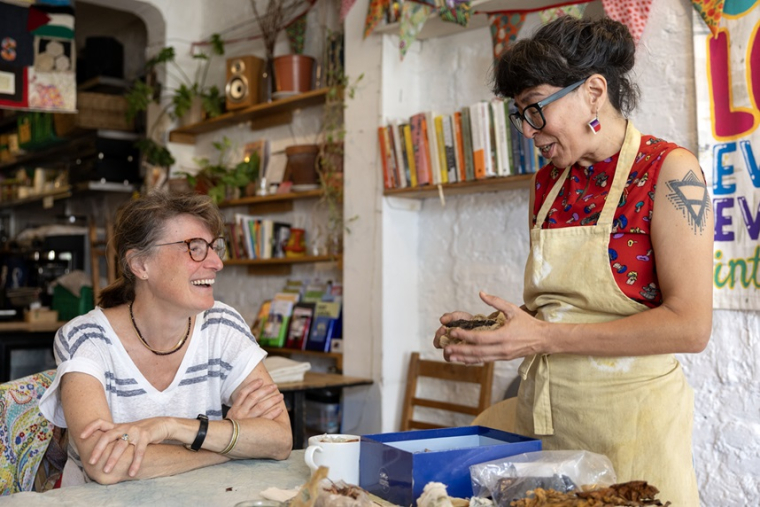
During the Onions ands… workshops series New Tribe invites people of all ages to explore natural dyeing, textile reuse, and collaborative making, turning discarded materials into vibrant stories. This guide is based on one of their hands-on workshops, where onion skins, often tossed aside, become the source of rich, earthy colour for natural fabrics.
What you’ll need:
- Onion skins (yellow or red work well)
- Natural fabric (cotton, linen, wool, or silk)
- Water
- Salt (1 tablespoon)
- A pot for boiling
- A colander (if you want a clear dye bath)
Step 1: Prepare your fabric
Before dyeing, scour your fabric to remove any waxes, oils, or residues from manufacturing:
- Wash thoroughly with hot water and a mild detergent.
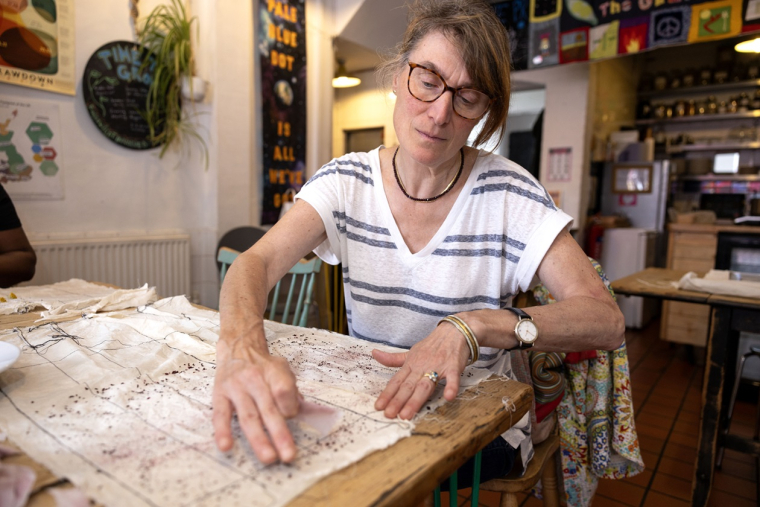
Step 2: Prepare the dye bath
- Use 1 cup of crushed onion skins for every 1 litre of water.
- Add 1 tablespoon of salt to help fix the colour.
- To mordant your fabric, which is the part of the process that fix the colour, you can add a small amount of iron from rust, iron tablets, and in this case onions skin are full of tannins, so they hold mordants themselves.
Step 3: Heat the dye bath
- Bring the water to a boil, then add the onion skins.
- Onion skins are robust, so boiling is fine.
- Simmer for a while, then reduce the heat.
- Let the mixture sit overnight to obtain the maximum colour.
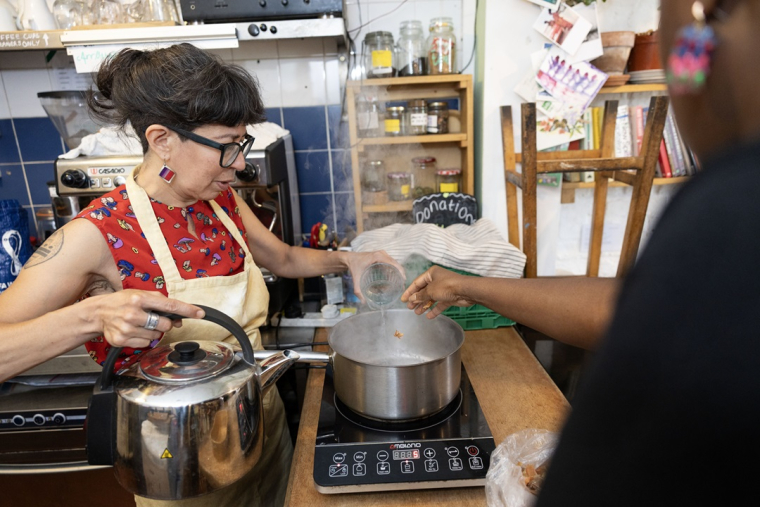
Step 4: Dye the fabric
- Add your pre-mordanted fabric to the dye bath.
- You can leave the onion skins in the bath for a textured effect, or strain them out using a colander for a cleaner look.
- Let the fabric soak for several hours or overnight, depending on the desired intensity.
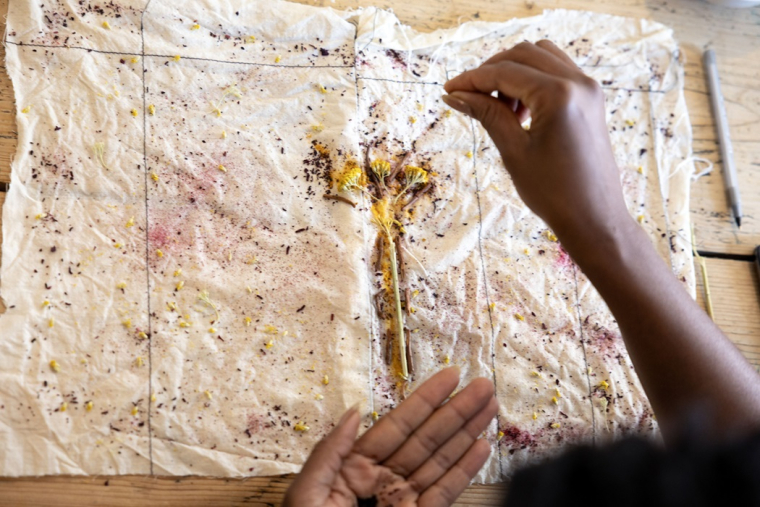
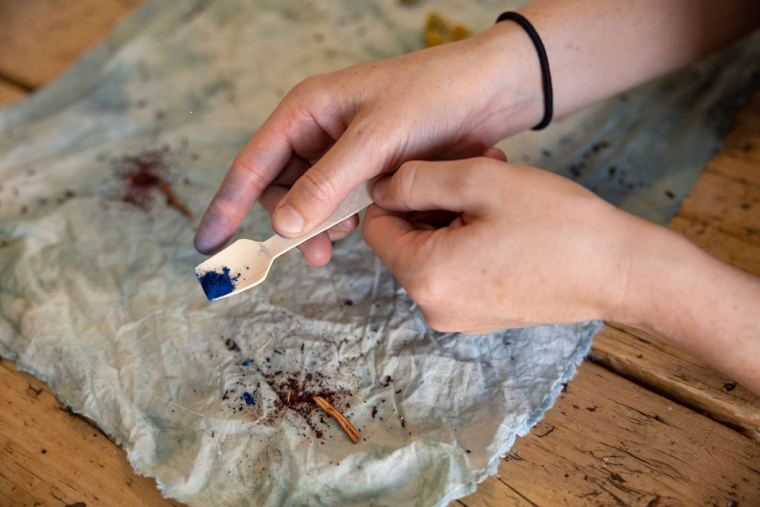
Bundle dyeing technique
- Place crushed onion skins directly onto the fabric.
- Roll or fold the fabric tightly.
- Steam it to transfer the colour.
- This creates unique patterns and textures.
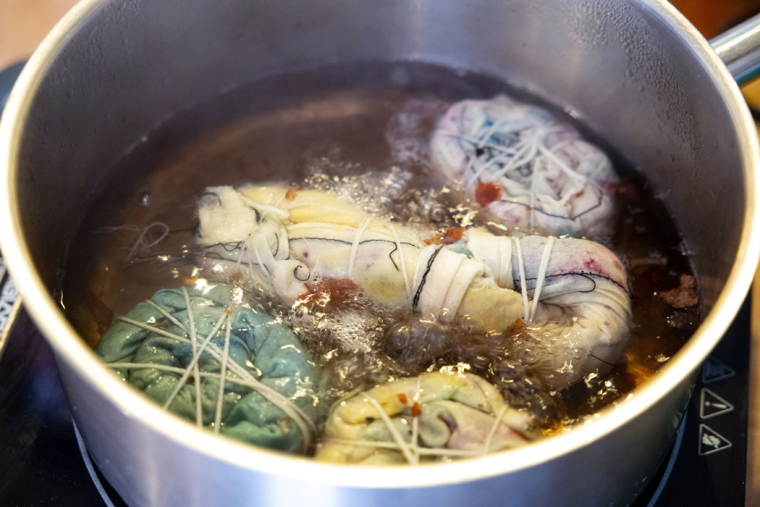
Step 5: Rinse and dry
- Remove the fabric from the dye bath.
- Rinse gently in cool water until the water runs clear.
- Hang to dry.
- Brush off any remaining onion skin bits if you left them in the bath.
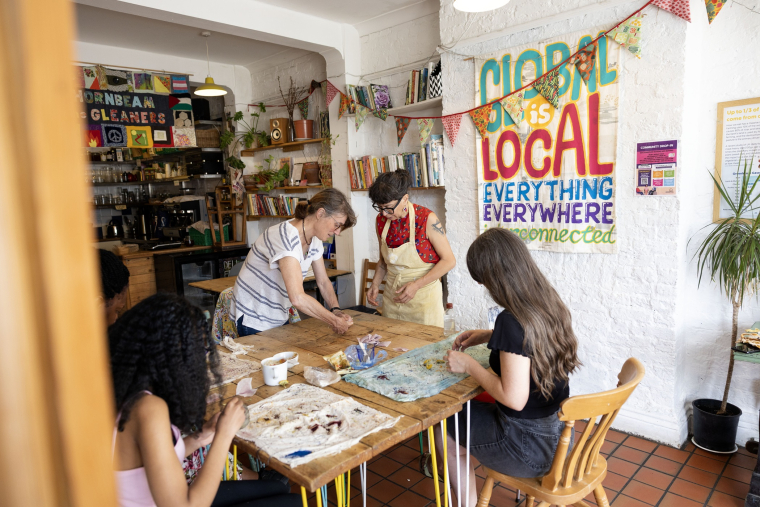
Notes & Tips
- Leaving the skins in the bath adds rich texture but may leave bits on the fabric.
- Everyone has different preferences, some love the rustic look, others prefer a clean finish.
- You can reuse dried onion skins for future dyeing sessions.
